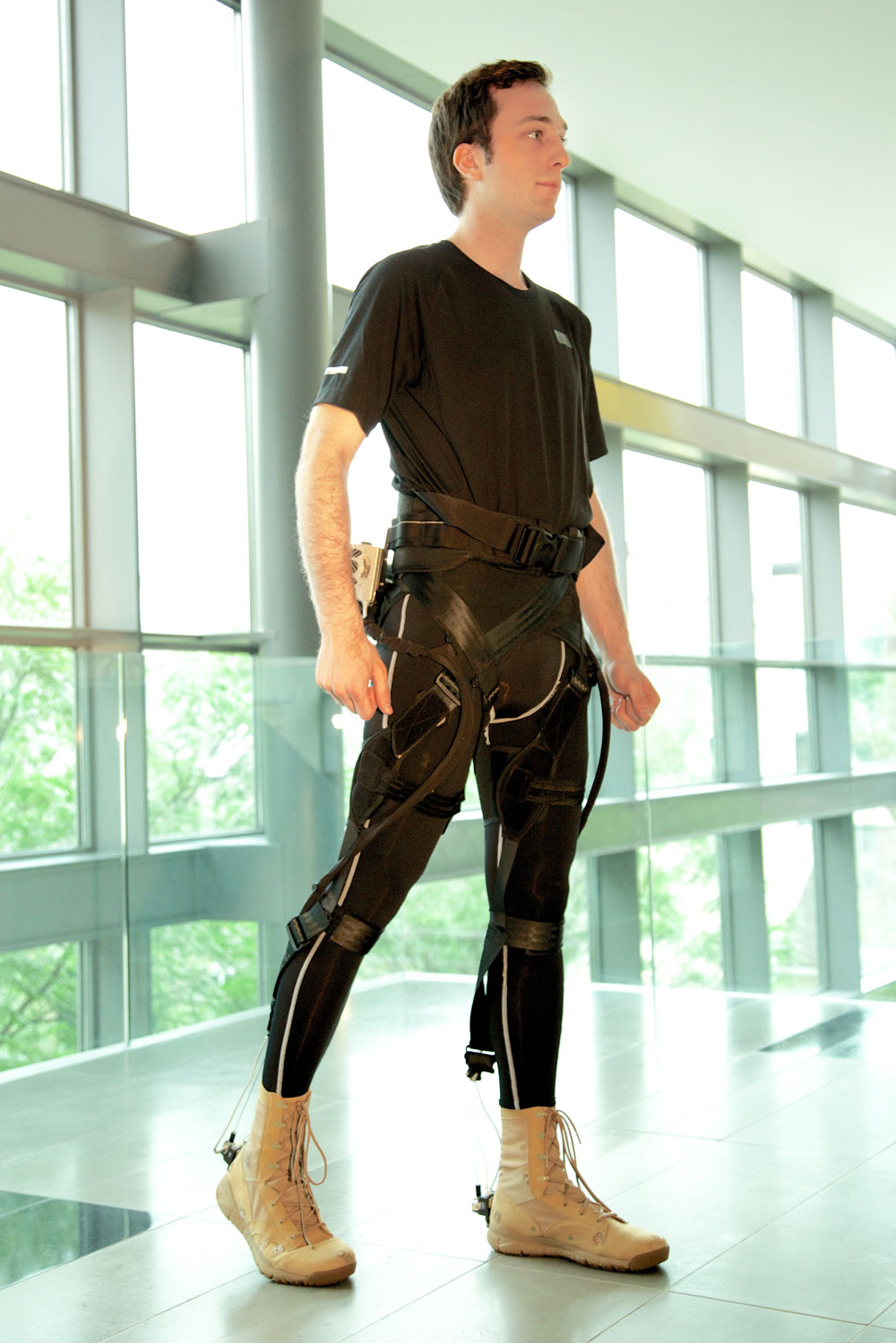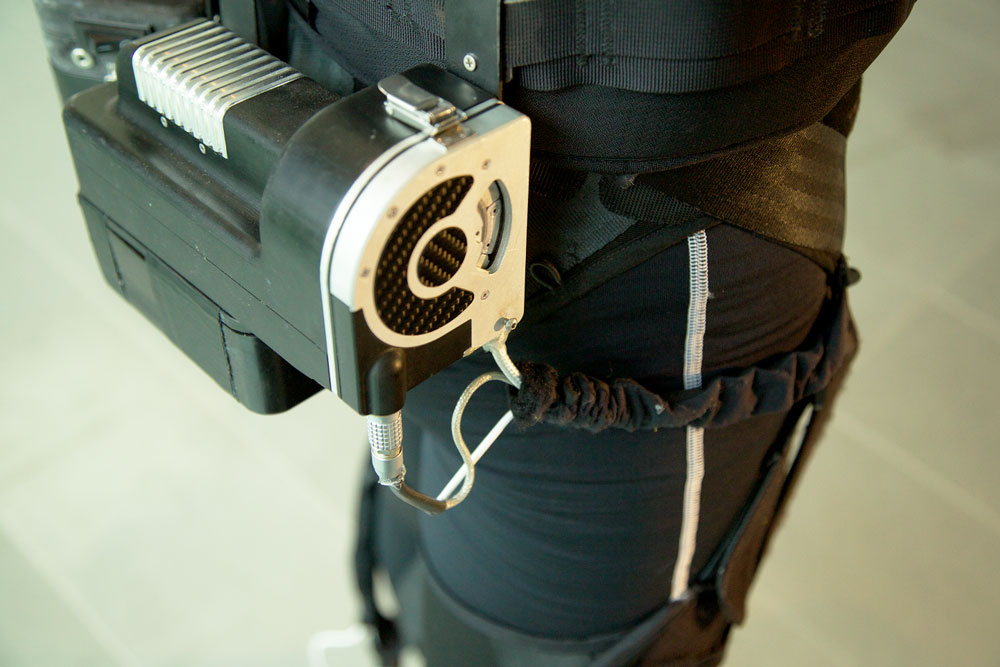
Robohub.org
Bioinspired robotics #3: Wearables, with Conor Walsh

Source: Wyss Institute at Harvard University
In the Disruptive Podcast series, Terrence McNally speaks directly with Wyss Institute researchers, exploring what motivates them and how they envision our future as might be impacted by their disruptive technologies. In part 3 of the Disruptive: Bioinspired Robotics episode, Wyss Core Faculty Member Conor Walsh discusses how a wearable robotic exosuit or soft robotic glove could assist people with mobility impairments, as well as how the goal to create real-world applications drives his research approach.
Walsh is the founder of the Harvard Biodesign Lab, which brings together researchers from the engineering, industrial design, apparel, clinical and business communities to develop new technologies and translate them to industrial partners. His research focuses on applying disruptive technologies to the development of robotic devices for augmenting and restoring human performance. His current research interests include new approaches to design, manufacture and control of wearable robotic devices and characterizing their performance through biomechanical and physiological studies.
He leads a team of researchers on the DARPA Warrior Web project to develop a soft exosuit that can assist with locomotion that can perform small levels of assistance to a wearer. The exosuit’s function is based on a detailed understanding of human walking and is soft and pliable, unlike traditional exoskeletons that use rigid components. The long term goal is to develop fully portable wearable robots to assist the disabled and able-bodied and further the scientific understanding of how humans interact with such machines.

Source: Wyss Institute at Harvard University
If you liked this article, you may also be interested in:
- Robots Podcast #180: Soft Robotics Toolkit, with Donal Holland
- Two new soft robotics competitions announced by Soft Robotics Toolkit
- Body-enhancing exoskeletons could be stepping into industrial trials next year
- Robots Podcast #182: Supernumerary limbs, with Federico Parietti
- Robot Startup Series #7: Interview with Soft Robotics’ Carl Vause
- ShanghAI Lectures 2013, Lecture 6 – Soft Robotics and Bioinspiration II
See all the latest robotics news on Robohub, or sign up for our weekly newsletter.
tags: c-Research-Innovation, Disruptive Podcast, exoskeleton, exoskeletons, podcast, robotics, wearable robotics




